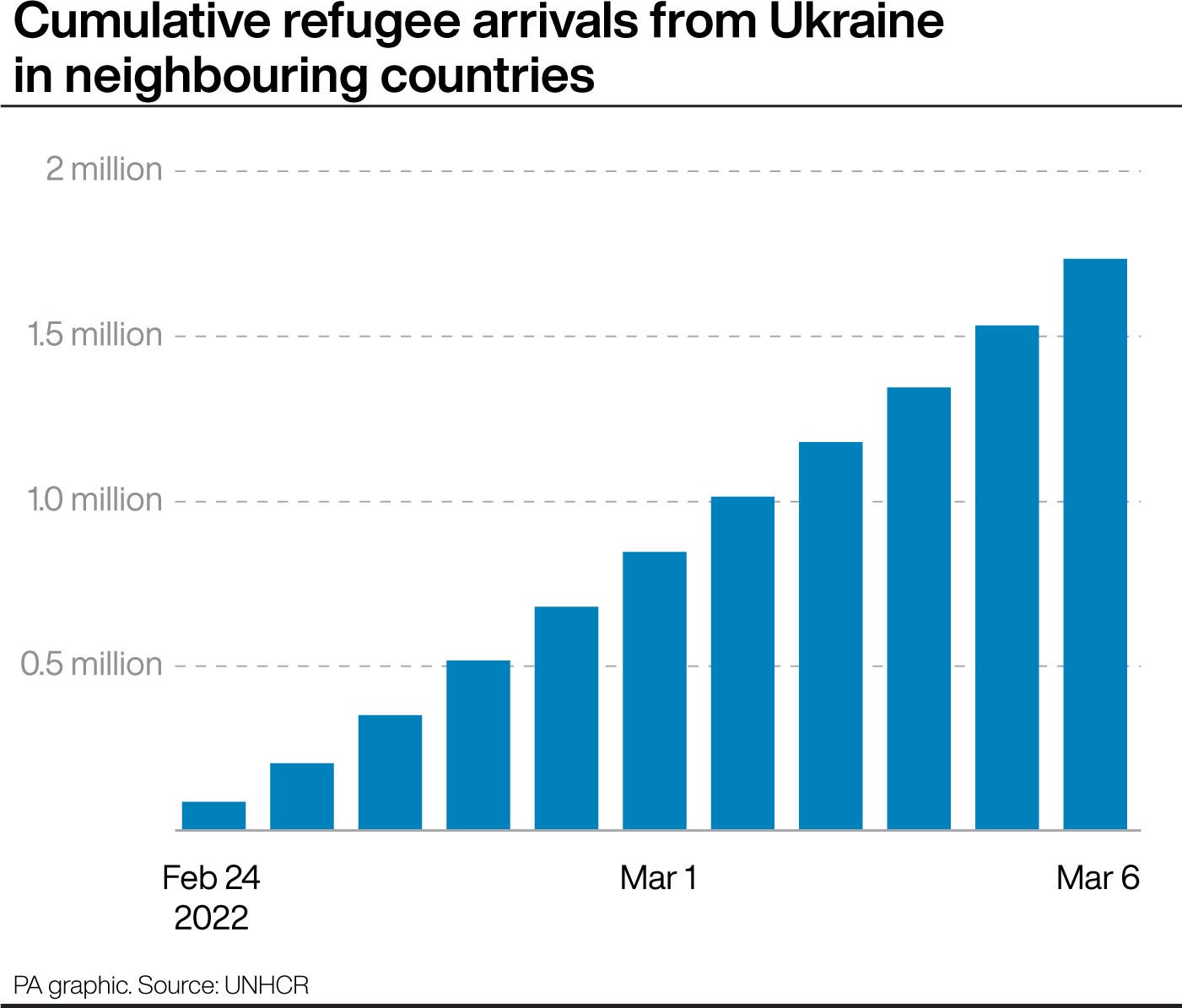Russia has destroyed Ukraine’s atomic physics lab, IAEA says
‘We have already had several episodes compromising safety at Ukraine’s nuclear sites’
An atomic physics lab in Ukraine under international safeguards has been destroyed by Russian troops advancing to capture Kyiv, the International Atomic Energy Agency said.
Officials from the global nuclear watchdog said that a neutron generator at the Kharkiv Institute of Physics and Technology was destructed in an attack on Sunday.
One of Ukraine’s key labs, it was used in research and to provide medical isotopes for health care works.
“The facility in north-eastern Ukraine is used for research and development and radioisotope production. Because the nuclear material in the facility is always subcritical and the inventory of radioactive material is very low, the IAEA’s assessment confirmed that the damage reported to it would not have had any radiological consequence,” Rafael Mariano Grossi, the head of IAEA, said in a statement.
Stating that “we cannot go on like this”, Mr Grossi said he was ready to meet Ukrainian and Russian officials at a location of their preference over the stand-off to secure the safety of atomic sites as the Moscow-ordered invasion continues for the 13th straight day.
“We have already had several episodes compromising safety at Ukraine’s nuclear sites,” the director general said, adding that the physical integrity, communication channels and supply chains of the facilities need to be guaranteed.
The attack on a nuclear facility, the second one in less than a week, by Russian troops has alarmed authorities over the dangers of military offensive around Ukraine’s facilities.
“Sunday’s incident highlighted once again the risks facing Ukraine’s nuclear installations during the armed conflict, adding urgency to an IAEA initiative aimed at ensuring nuclear safety and security in the country,” the statement added.
On Friday, the war in Ukraine took an alarming turn after a fire broke in a building outside Europe’s biggest nuclear power plant in Zaporizhzhia following Russian shelling.
Although the fire in a training centre building close to the site was extinguished in a few hours, the incident raised fears of a Chernobyl-type disaster that had the potential to affect the entire continent for decades.
At least two members of the facility’s security team were injured in the attack.

Mr Putin’s forces have already wrested control of the Chernobyl nuclear power plant.
The Russian troops also damaged nuclear-waste facilities in Kyiv in the first week of the war, sparking grave fears of radioactive exposure to tens of thousands civilians trapped in the war-struck country.
Russia has been asked by the EU energy commissioner to “return all of Ukraine’s nuclear facilities to the full operational and regulatory control of Ukraine, including unhindered access of staff to these facilities, both at Zaporizhzhia as well as in the Chernobyl Exclusion Zone”, Bloomberg reported.
The Independent has a proud history of campaigning for the rights of the most vulnerable, and we first ran our Refugees Welcome campaign during the war in Syria in 2015. Now, as we renew our campaign and launch this petition in the wake of the unfolding Ukrainian crisis, we are calling on the government to go further and faster to ensure help is delivered.
To find out more about our Refugees Welcome campaign, click here. To sign the petition click here. If you would like to donate then please click here for our GoFundMe page.
Join our commenting forum
Join thought-provoking conversations, follow other Independent readers and see their replies
Comments
Bookmark popover
Removed from bookmarks